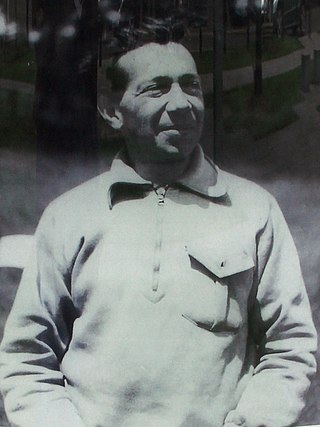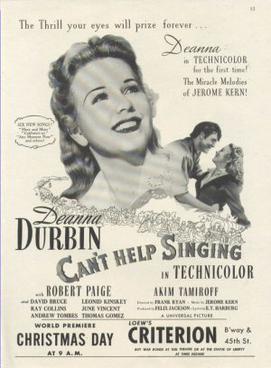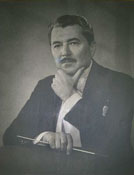Related Research Articles

The Academy Award for Best Original Score is an award presented annually by the Academy of Motion Picture Arts and Sciences (AMPAS) to the best substantial body of music in the form of dramatic underscoring written specifically for the film by the submitting composer. Some pre-existing music is allowed, though, but a contending film must include a minimum of original music. This minimum since 2021 is established as 35% of the music, which is raised to 80% for sequels and franchise films. Fifteen scores are shortlisted before nominations are announced.

Dame Olga Maria Elisabeth Friederike Schwarzkopf, was a German-born Austro-British lyric soprano. She was among the foremost singers of lieder, and is renowned for her performances of Viennese operetta, as well as the operas of Mozart, Wagner and Richard Strauss. After retiring from the stage, she was a voice teacher internationally. She is considered one of the greatest sopranos of the 20th century.
Alex North was an American composer best known for his many film scores, including A Streetcar Named Desire, Viva Zapata!, Spartacus, Cleopatra, and Who's Afraid of Virginia Woolf? He received fifteen Academy Award nominations for his work as a composer; while he did not win for any of his nominations, he received an Honorary Academy Award in 1986, the first for a composer.

Ned Washington was an American lyricist born in Scranton, Pennsylvania.

Robert Bernard Sherman was an American songwriter, best known for his work in musical films with his brother, Richard M. Sherman. The Sherman brothers produced more motion picture song scores than any other songwriting team in film history. Some of their songs were incorporated into live action and animation musical films including Mary Poppins, The Happiest Millionaire, The Jungle Book, The Many Adventures of Winnie the Pooh, Chitty Chitty Bang Bang, The Slipper and the Rose, and Charlotte's Web. Their best-known work is "It's a Small World " possibly the most-performed song in history.
Michael Wilson was an American screenwriter.

Helmut Berger was an Austrian actor, known for his portrayal of narcissistic and sexually ambiguous characters. He was one of the stars of European cinema in the late 1960s and 1970s, and is regarded as a sex symbol and pop icon of that period.

William Gerald Paris was an American actor and director best known for playing Jerry Helper, the dentist and next-door neighbor of Rob and Laura Petrie, on The Dick Van Dyke Show, and for directing the majority of the episodes of the sitcom Happy Days.

Friedrich Hollaender was a German film composer and author.

Can't Help Singing is a 1944 American musical Western film directed by Frank Ryan and starring Deanna Durbin, Robert Paige, and Akim Tamiroff. Based on a story by John D. Klorer and Leo Townsend, the film is about a senator's daughter who follows her boyfriend West in the days of the California gold rush. Durbin's only Technicolor film, Can't Help Singing was produced by Felix Jackson and scored by Jerome Kern with lyrics by E. Y. Harburg.
Emil Newman was an American music director and conductor who worked on more than 200 films and TV series. He was nominated for an Oscar for his musical direction on the classic Sun Valley Serenade (1941), contributing to the Newmans being the most nominated Academy Award extended family, with a collective 95 nominations in various music categories.

The Music Man is a 1962 American musical film directed and produced by Morton DaCosta, based on Meredith Willson's 1957 Broadway musical of the same name, which DaCosta also directed. Robert Preston reprises the title role from the stage version, starring alongside Shirley Jones, Buddy Hackett, Hermione Gingold, Ronny Howard, and Paul Ford.

Paul Frederick Jabara, was an American actor, singer, and songwriter. He was born to a Lebanese family in Brooklyn, New York. He wrote Donna Summer's Oscar-winning "Last Dance" from Thank God It's Friday (1978) as well as "No More Tears " her international hit duet with Barbra Streisand. He also co-wrote The Weather Girls' iconic hit "It's Raining Men".
Irwin Kostal was an American musical arranger of films and an orchestrator of Broadway musicals.

Leo Arnaud or Léo Arnaud was a French American arranger, composer, and orchestrator of film scores. He composed "Bugler's Dream", which is used as the theme by television networks presenting the Olympic Games in the United States.
Herbert Pope Stothart was an American songwriter, arranger, conductor, and composer. He was nominated for twelve Academy Awards and won Best Original Score for The Wizard of Oz. Stothart was widely acknowledged as a prominent member of the top tier of Hollywood composers during the 1930s and 1940s.
The Cowboy and the Lady is a 1938 American Western romantic comedy film directed by H.C. Potter, and starring Gary Cooper and Merle Oberon. Written by S.N. Behrman and Sonya Levien, based on a story by Frank R. Adams and veteran film director Leo McCarey, the film is about a beautiful socialite masquerading as a maid who becomes involved with an unpretentious, plain-spoken cowboy who is unaware of her true identity. The Cowboy and the Lady won an Academy Award for Sound Recording, and was nominated for Original Score and Original Song.

Keoma is a 1976 Italian Spaghetti Western film directed by Enzo G. Castellari and starring Franco Nero. It is frequently regarded as one of the better 'twilight' Spaghetti Westerns, being one of the last films of its genre, and is known for its incorporation of newer cinematic techniques of the time and its vocal soundtrack by Guido & Maurizio De Angelis.
Frank Willard Van der Veer was an American optical and visual special effects artist who won a Special Achievement Academy Award at the 49th Academy Awards for Best Visual Effects for the film King Kong (1976). His career spanned over three decades from the 1950s until his death in the early 1980s, having participated in the Hollywood special effects industry with such other films as The Towering Inferno (1974), Killer Bees (1974), Logan's Run (1976), Star Wars (1977), 1941 (1979), Flash Gordon (1980), Clash of the Titans (1981) and Conan the Barbarian (1982).
Thomas Glenn Robinson, better known as Glen Robinson, was an American special and visual effects artist, winner of six Academy Awards: two Academy Awards for Technical Achievement and four Special Achievement Academy Awards. As a special effects artist, his career spans over six decades from the mid-1930s to the mid-1980s, having worked literally on dozens of films.
References
- ↑ "Leo Shuken (1906 - 1976) - Find A Grave Memorial". www.findagrave.com. Retrieved 2016-06-26.